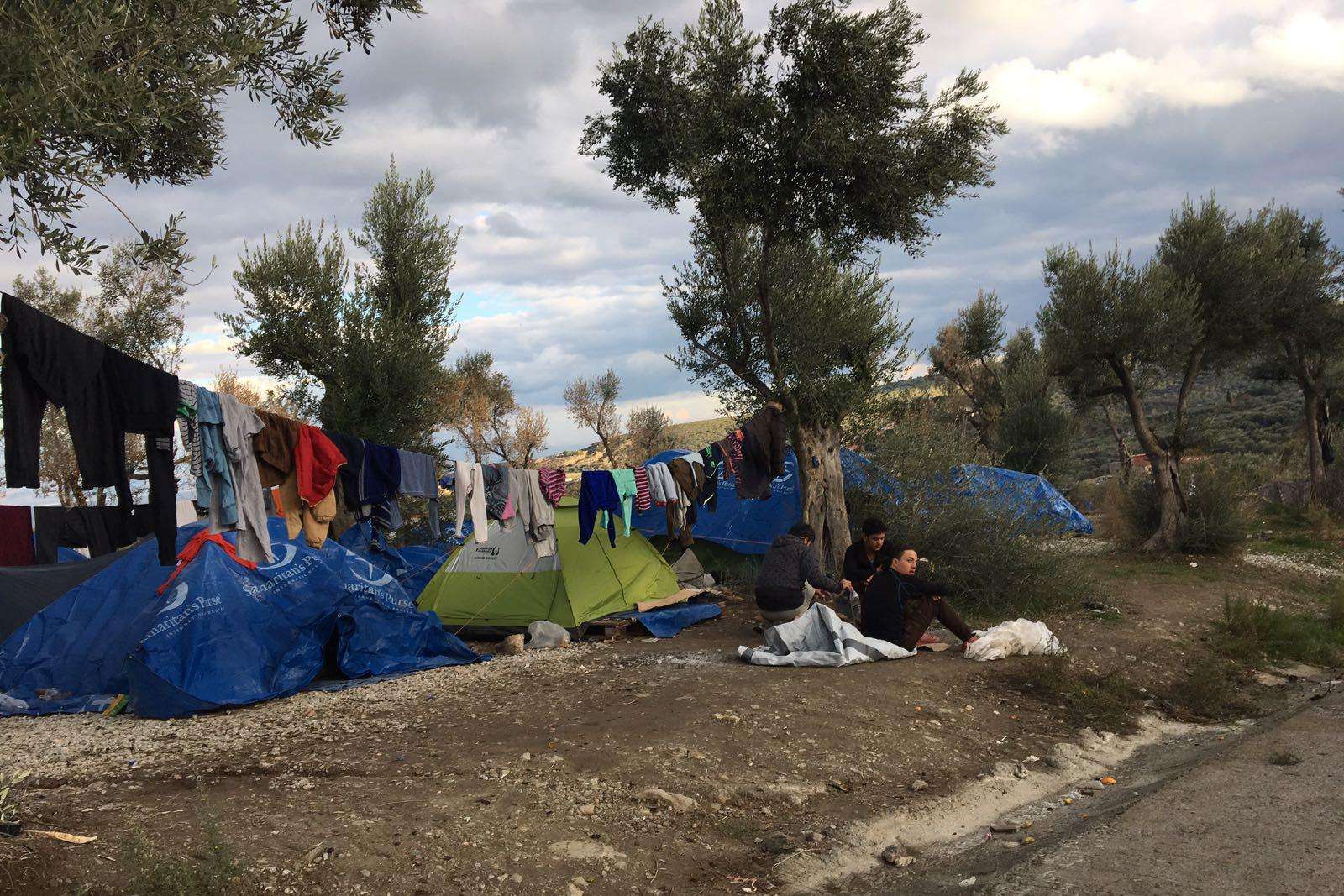ATHENS /NEW YORK, MARCH 17, 2018—Two years after the signing of a deal between the European Union (EU) and Turkey, Europe's cynical strategy to contain and return people seeking asylum has trapped thousands of vulnerable people in disastrous conditions on Greek islands, the international medical humanitarian organization Doctors Without Borders/Médecins Sans Frontières (MSF) said today, calling on Greek and EU authorities to increase transfers to the Greek mainland.
MSF teams warn of a mental health crisis in camps on Greece's islands, such as Lesbos and Samos, where people seeking asylum lack adequate protection, water, sanitation, or medical care and are prevented from moving to the mainland.
"This is no time to celebrate the EU-Turkey deal," said Louise Roland Gosselin, MSF head of mission in Greece. "This week, two young men in Moria camp on Lesbos tried to commit suicide by electrocution. On March 14, riots in Moria erupted once again. That evening and the following day, our teams treated 19 people for panic attacks and exposure to tear gas, including 11 children and a six-month-old baby. Such scenes have become tragically common on Greece's islands. It is unbearable, and simply outrageous. Let no one dare say this is a success."
While transfers to the mainland took place over the winter to relieve the crowding of reception facilities, over 5,400 people still live in a camp designed for 2,300 people in Moria camp in Lesbos; 2,000 people live in a camp designed for 700 people in Samos; and about 1,300 remain in Vial camp in Chios. This overcrowding may worsen as arrivals increase with the onset of milder weather, including 589 people who arrived in the first two weeks of March alone.
Despite the presence of some medical care providers, basic medical needs are not being met on the islands. MSF teams near Moria continue to see many children under five years old with respiratory conditions, diarrhea, or skin diseases—some needing repeated treatment as the living conditions continuously harm their health. There is only substandard, limited access to running water and sanitation facilities, which are often unhygienic or not functional.
MSF teams also regularly witness incidents of violence, and there are no systems in place to effectively protect the most vulnerable people in the camps.
Monika Gattinger-Holboeck, MSF mental health activity manager, gave the following account:
"The appalling conditions in the overcrowded camp in Moria are exacerbating people's mental health problems severely. Beside the disastrous living conditions and having to fight for every little thing, clean water, decent shelter, a shower, food—men, women, and children live in fear every day of what will happen to them, of being sexually assaulted, exposed to violence, or being deported.
"People have escaped unimaginable suffering, torture, killing of beloved ones, bomb attacks, and survived long, dangerous journeys to get here. They arrive full of hope at finally being in Europe.
"And then they find themselves trapped in Moria, an inhuman, dangerous place, where human rights are being constantly violated. And this is when they lose all their hope.
"People’s psychological conditions are shocking: until December we had daily around 10 patients with acute mental distress in our mental health clinic, patients who have tried to kill themselves or harmed themselves because they cannot continue with this daily fight to survive in Moria. But we had to stop accepting new patients because our clinic was so overloaded.
"Most of our patients suffer from a severe post-traumatic stress disorder and their mental health condition is getting worse with each day they are trapped in the inhuman conditions of Moria camp, and many of them are here for months or up to two years now. It is essential for them to be moved to the mainland, to have their basic needs met, to have access to proper treatment, to be on a safe place."
For transfers to the mainland to continue as necessary, relocations to other EU countries should resume, and additional accommodation capacity should be created on the mainland. At the moment, the lack of accommodation capacity on the mainland is blocking hundreds of people from leaving the islands.
In parallel, the provision of medical and other essential services must be increased to meet the immediate needs of people on the islands and on the mainland. Barriers to access to basic services should also be addressed, including administrative barriers and the lack of translators in national health services.
"As MSF, we will continue to firmly oppose a deal that is not focused on improving the protection and assistance of those in need, but on the contrary seems deliberately intended to produce suffering for those who cross the sea, with the idea that this will deter others from undertaking the crossing," Gosselin said. "Not only is it cruel but it just doesn’t work. With no alternative options, families from countries including Syria, Iraq and Afghanistan continue to risk it all on a daily basis in order to reach Greek shores. We will not stop demanding that the EU and the Greek authorities end this cynical strategy of containment, to stop further damaging the health of our patients and respect their dignity."
MSF has been providing medical and humanitarian assistance to asylum seekers and migrants in Greece since 1996. In 2014, MSF expanded its activities in Greece to meet the needs of asylum seekers arriving on the Greek islands and mainland from Turkey. Since 2016, MSF medical teams in Greece have offered services including primary health care, treatment for chronic diseases, sexual and reproductive health care, physiotherapy, individual and group or family clinical psychological care, as well as psychiatric care. Today, MSF provides services in downtown Athens, as well as on the islands of Lesbos, Chios, and Samos. In 2017, MSF teams in Greece carried out more than 32,000 patient consultations.




